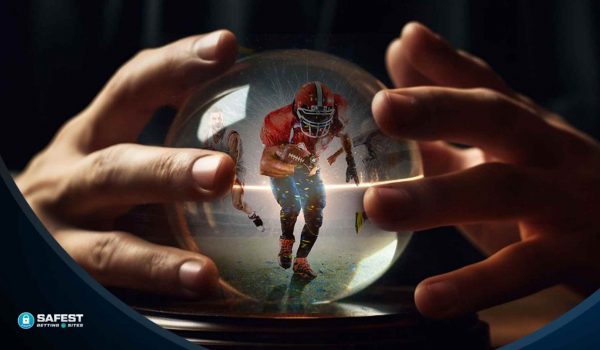Aside from observing the physical and mental limits the human body can get pushed to, a massive part of the allure of watching sports is the uncertainty associated with athletic contests’ outcomes. Things that are expected to happen often don’t, for many reasons.
It is this element of volatility that makes sports so exciting at times. However, this aspect is only equally present in some forms of competition. You can see it more in some than others. That can be due to the nature of the competition type, the discrepancy in talent, the availability of statistical analysis, or other factors.
And, in different types, things are more likely to go down as we assume they will. So, here, we rattle off a few forms of sporting duels where predicting their results is easiest. For many, part of the grounds why these sports are not for them is that they lack the characteristics that keep fans on the edge of their seats at all times, given their above-average degree of foreseeability.
Basketball
Soccer, or football as most parts of the world call it, is undoubtedly the most popular sport globally. Nevertheless, despite what some may think, footie matches are more challenging to predict. This stems from the sport’s low-scoring nature and the fact that one team can score a goal from one created chance, and another can miss a dozen good ones, failing to put the ball at the back of the net. Hence, the better side, which displays more consistency on the pitch, does not always win.
Basketball is different because it has a high rate of scoring frequency, making it easier for a higher-quality team to gain momentum. Star players can also have a much higher impact on outcomes, and there is less variability in b-ball action. The same goes for player performances, less prone to extreme form fluctuations.
In basketball, it is much easier for the better squad to reply and show their skill superiority over weaker ones. The playing area is smaller, and the game is not as draining, so it is easier for better players to prove they are better, even when they go behind.
Volleyball
Given that there is no draw option in volleyball, the number of outcomes is limited to two in these contests. Per some research, volleyball is the sport with the highest average probability (from odds) of the winner at 0.61. That is 0.04 more than basketball, with this probability created using betting data or winning Bovada odds (one of the more reputable online sportsbooks) as a match predictor. The average here gets calculated using different correlation means, which also factors in ties not found in volleyball.
That cited model also considers how easy it is to convert a quality advantage into a win. Thus, low-scoring contests, like soccer, make this harder. But in volleyball, a team requires three sets to emerge the victor, with each demanding twenty-five points scored. Moreover, as in basketball, momentum swings are common and have a dramatic effect in volleyball, as do team dynamics and physical athleticism. Consequently, these two sports are very similar.
Boxing
What many boxing lovers will not admit, but is the truth, is that the sweet science is a limited form of fighting. Furthermore, the sports talent pool needs to be deeper. Zippia claims there are around three thousand professional boxers in the US, with 68% of them being males, pulling an average salary of $28.754 per year from boxing. Accordingly, many of these individuals need to take this sport more seriously, and those with polished skills are few and far between. That means there is often a massive skill disparity in fights, and unlike in MMA, it is much easier for boxers to coast in matches, wind down the clock, and avoid losing when they encounter dire straits. The shorter rounds also contribute to this.
Formula 1 Racing
Is moto/car racing a sport? The short answer is yes because it requires physical fitness, top-notch reflexes, strategic planning, mental focus, and various other attributes linked with contests where one does not rely on the role of machinery. It goes without saying that in racing, especially Formula 1, winners get determined, in large part, by the quality of the car one is driving, as some teams have the means to create much higher-quality vehicles that supply drivers the edge they need to compete at the very top. When one pairs this with the fact few quality drivers exist, it becomes clear why it is hard to see some difference on the podium in races.
Going by the available analysis, driver age plays a role in their performance, as does fatigue and momentum. Pit stop speed and recent lap averages also provide insights into future performances and assess the vehicle’s quality. Data frame models exist that consider all these variables and produce highly accurate predictions.
Different online case studies depict machine learning used in correctly guessing race outcomes. Some of these show staggering precision. Of course, no one can account for the exact weather conditions on race day or the likelihood of car failure. So, some randomness is always at play.


